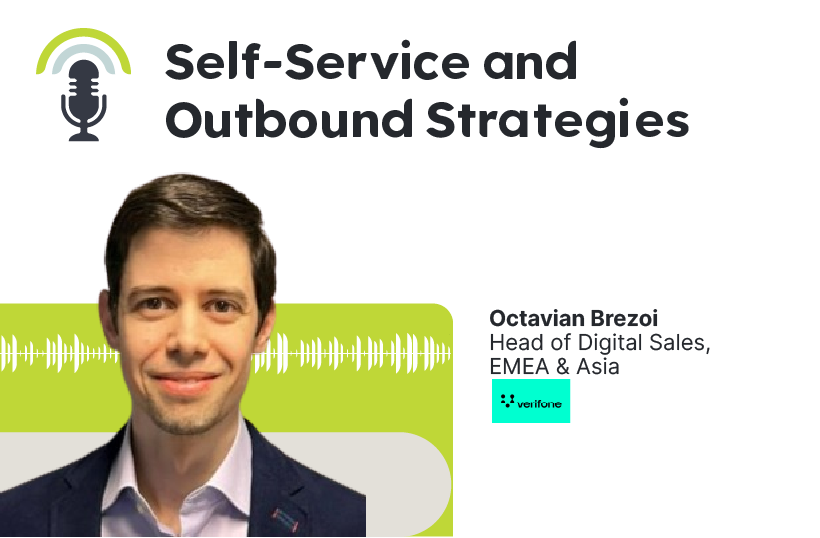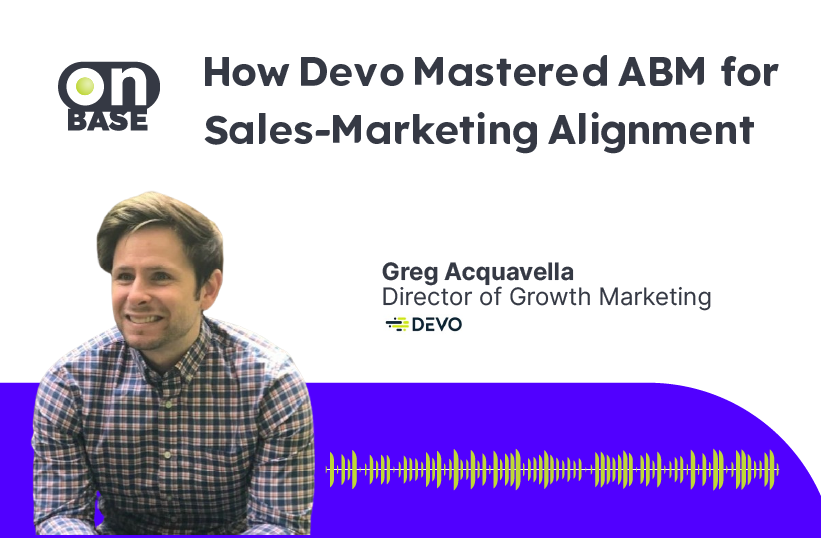
Navigating the Path to Success – Insights into Self-Service and Outbound Strategies
Shownotes
In this episode of Sunny Side Up, Tyler Gambardella chats with Octavian Brezoi of Verifone about how your brands can do more with less by optimising your sales funnels and marketing channels. They talk about navigating the challenges and opportunities of omni-channel sales approaches. While e-commerce continues to grow, most transactions still occur through traditional channels, underscoring the importance of creating consistent, integrated customer experiences. Leading effectively in such an environment, he notes, is akin to successful B2B selling, requiring trust-building, expertise, and leadership. He further dives into the intricacies of managing P&L, advocating for a vigilant approach to tracking risks and opportunities.
About the Guest
Octavian is a highly accomplished and results-oriented Sales Leader with over 14 years of experience in driving growth and building fruitful, long-term partnerships. With a “can-do” attitude and a growth mindset, he is passionate about empowering people and fostering value-driven conversations. He is currently serving as the Head of Digital Sales for EMEA at Verifone.
Key Takeaways
- Customer Experience is King. Today’s paramount challenge is creating a cohesive, relevant customer experience regardless of the sales method or channel.
- In an omni-channel approach, companies retain control over customer experiences, even if sales transpire through third-party resellers.
- When large clients interact with self-service systems, it’s vital to have monitoring mechanisms to provide optimal support.
- For a seamless omnichannel experience, aim to provide a consistent and integrated customer experience, whether they choose self-service or require assistance.
- Despite the consistent growth of e-commerce, traditional sales channels remain dominant. This presents both challenges and opportunities for businesses.
- The adoption of AI in corporate settings is inevitable. It’s about understanding its value and managing its usage effectively.
- Leading a sales team parallels B2B selling, demanding trust-building, expertise demonstration, and thought leadership.
- Steer the P&L by identifying, tracking, and mitigating risks and opportunities consistently.
- Don’t shy away from probing questions during the sales process. Asking prospects about potential obstacles can provide critical insights.
Quote
“Managing a sales team is a lot like selling in the sense that you need to be able to win the trust of your people. You need to be able to show expertise and be a leader.”
– Octavian Brezoi
Highlights from the Episode
Can you tell us more about your role and current focus area at Verifone?
Octavian leads the e-commerce sector of Verifone, noting its steady growth, especially since the pandemic started. Verifone handles over half of the world’s non-cash transactions. As the industry evolved over the past 50 years, so did Verifone.
Could you describe the customers you work with, their common struggles, and how your team advises them through those challenges?
Octavian dives into the behind-the-scenes of Verifone’s terminal operations. Beyond touching or swiping a card, numerous processes ensure the transaction’s security, routing data to bank card networks and ensuring the merchant receives payment. Octavian emphasises Verifone’s significant role in assisting companies in global sales, ensuring payment processing, and, crucially, facilitating compliance with international sales tax and regulatory requirements.
Please shed light on Verifone’s self-service and outbound business model
Verifone aids businesses in navigating multiple sales channels, such as direct indirect, and the newer self-service model or Direct 2.0. The modern challenge is not just utilising these channels but ensuring a consistent and relevant customer experience across all, transitioning from a multi-channel to an omni-channel strategy.
How do you optimize customer support to ensure both small and large customers receive a seamless experience?
Octavian discusses the significance of making a product globally available to diverse demographics and the importance of understanding how customers want to experience the buying process. He describes the two types of sales channels: self-service and assisted. Octavian also elaborates on the challenges when a major client (like a Fortune 1000 company) lands in the self-service process, pointing out the necessity of having a monitoring system in place. Understanding the customer journey and integrating solutions allow for solutions that allow for both self-service and assisted sales experiences.
In the midst of an economic downturn, how do you manage to accomplish more with fewer resources and strategically allocate them to achieve maximum results?
While e-commerce has shown consistent growth, there is still a reliance on traditional sales channels. A significant challenge faced is the need for more technical resources. To optimise results, it’s crucial to ensure high conversion rates, allocate sales team resources wisely, and balance self-service and assisted sales. Embracing automation and the ever-evolving realm of artificial intelligence can offer solutions that reduce manual intervention and optimise processes.
As a business leader can you walk us through some of the challenges of managing a P&L. What advice would you have for our listeners who may be in similar positions?
Managing a sales team requires trust, expertise, and leadership, akin to the requirements in B2B sales. When handling a P&L, it’s crucial to be conscious of risks and opportunities and continuously monitor them. This approach parallels a useful sales technique where salespeople inquire about possible hurdles in closing a deal. Effective risk management in sales and P&L involves regular forecasting, assigning probabilities to risks, and navigating unpredictable factors like economic shifts.
Good reads: Is there a book, blog, newsletter, website, or video that you would recommend to our listeners?

Sunny Side Up
B2B podcast for, Smarter GTM™



